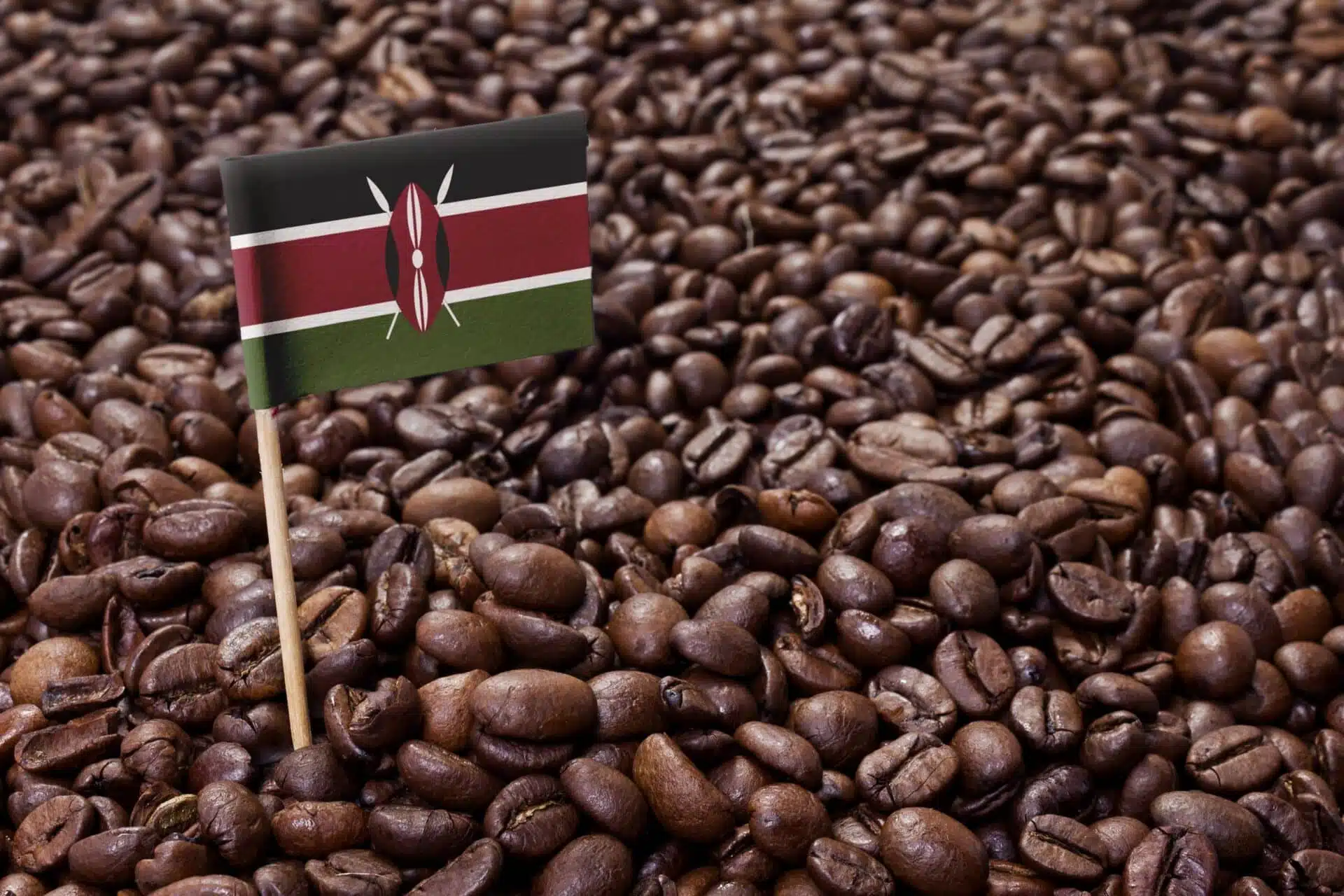Kenyan coffee stands as a testament to the country’s rich agricultural heritage and unique flavor profiles. With origins deeply rooted in the highlands, the cultivation of coffee in Kenya began as a small endeavor, blossoming into a vital economic driver. This post will unfold the captivating journey of Kenyan coffee, tracing its introduction and development, highlighting the collaborative spirit of farmers, and examining the profound cultural significance it holds today. As we explore its challenges and future prospects, you’ll gain a comprehensive understanding of what makes Kenyan coffee truly exceptional.
Introduction to Kenyan Coffee
Kenyan coffee stands out as one of the world’s most celebrated coffee varieties, renowned for its unique flavor profile and high quality. Grown in the high altitudes of the East African highlands, the beans benefit from the region’s optimal climate, rich volcanic soils, and meticulous cultivation methods.
Key Features of Kenyan Coffee:
- Flavor Profile: Kenyan coffee typically exhibits bright acidity, full body, and fruity or wine-like characteristics. These flavors often reflect the specific terroir from which they originate.
- Varietals: Two primary coffee varietals dominate the Kenyan coffee scene: Arabica and Robusta. However, Arabica remains the preferred choice due to its superior taste and aroma.
- Processing Methods: Kenyan coffee is often processed using the washed method, enhancing its clarity and highlighting its vibrant flavors.
Due to its exceptional quality, Kenyan coffee commands a premium price in international markets. Coffee farmers in Kenya invest time and effort into cultivating these beans, contributing not only to their livelihood but also to the country’s economy.
In essence, Kenyan coffee is more than just a beverage; it is intertwined with the nation’s identity, reflecting its culture and agricultural heritage. As we delve deeper into the rich tapestry of Kenyan coffee, we will explore its origins, the impact of colonialism, and the evolving dynamics of its production.

Origins of Coffee Cultivation in Kenya
The story of Kenyan coffee begins in the highlands of East Africa, where the ideal climate and rich volcanic soil create perfect conditions for coffee cultivation. Initially, coffee plants were introduced to Kenya in the late 19th century by missionaries and colonizers, who recognized the potential of this crop. Key points regarding the origins of coffee cultivation in Kenya include:
- Introduction of Arabica Coffee: The primary species cultivated in Kenya is Arabica coffee, prized for its rich flavor and aroma. Arabica was first planted near the Mount Kenya region around the 1890s.
- Cultural Significance: Coffee quickly transformed from a mere cash crop to a vital part of local culture. Farmers began to integrate coffee cultivation into their traditional agricultural practices, enhancing both the economy and community cohesion.
- Coffee Varieties: Various coffee varieties were cultivated, including SL 28 and SL 34, known for their excellent quality. The characteristics of these beans have significantly contributed to the global reputation of Kenyan coffee.
- Spread across Regions: By the early 20th century, coffee farming spread beyond central highlands to other regions, adapting to different climates and altitudes, which further diversified the coffee profile.
In conclusion, the roots of coffee cultivation in Kenya reflect an intricate blend of environmental, cultural, and historical factors. This foundational stage laid the groundwork for what would become one of the world’s most esteemed coffee regions, renowned for its bold flavors and vibrant character.
The Introduction of Coffee to Kenya
The journey of Kenyan coffee began in the late 19th century when the British colonialists introduced this beloved beverage. Here’s a concise look at how coffee found its way to Kenya:
- Year of Introduction: Coffee arrived in Kenya around 1893. The British colonizers planted the first coffee seeds in the fertile highlands, particularly near the Mount Kenya region.
- Varieties Cultivated: Initially, Arabica coffee was the primary variety introduced, renowned for its rich flavor and aromatic qualities.
- Early Adoption: By the early 1900s, coffee cultivation gained momentum as settlers began establishing coffee plantations, leading to increased production and exportation.
- Government Support: The colonial government recognized the potential of Kenyan coffee as a cash crop. They implemented structures for better farming practices, and even offered incentives to boost coffee production.
- Local Farmers’ Involvement: As time progressed, local Kikuyu farmers started planting coffee, which marked a significant shift in ownership and production dynamics.
Comparison Table: Introduction of Coffee to Kenya
| Aspect | Details |
|---|---|
| Year Introduced | 1893 |
| Initial Varieties | Mainly Arabica |
| Influencing Factors | British colonization, government incentives |
| Early Producers | Settlers and local Kikuyu farmers |
In conclusion, the introduction of coffee to Kenya set in motion a vibrant industry that has profoundly influenced the nation’s economy and culture. As Kenyan coffee continues to thrive, its origins remind us of its rich historical backdrop.
Development of the Coffee Economy in Colonial Period
During the colonial period, the development of the Kenyan coffee economy witnessed significant transformations. The British colonial administration recognized the economic potential of coffee and began to plant coffee on large estates. Below are the key factors that influenced this growth:
- Introduction of Coffee Plantations: In the early 20th century, European settlers established large coffee farms. They utilized fertile regions, particularly in areas like Nyeri and Kirinyaga, leading to intensified coffee cultivation.
- Labor Dynamics: The colonial regime introduced labor policies that brought in local populations and hired laborers from neighboring regions. This labor force facilitated the establishment of expansive coffee farms.
- Infrastructure Development: The establishment of railways and roads helped transport coffee beans to markets. Access to these infrastructures improved the efficiency of coffee production and exportation.
- Export Growth: By the 1930s, Kenyan coffee had established itself as an important export crop, providing a significant revenue stream for both the colonial government and local farmers.
- Impact of Global Markets: The global demand for coffee surged, with European and American markets keen on high-quality Kenyan coffee. Consequently, this stimulated innovation in farming practices, enhancing productivity.
Overall, the colonial period laid the groundwork for what would become a cornerstone of Kenya’s economy. Through an intricate mix of land use, labor, and market dynamics, coffee farming in Kenya evolved into a robust economic sector.

The Role of Cooperative Societies in Coffee Production
Cooperative societies have played a pivotal role in shaping the landscape of Kenyan coffee production. These grassroots organizations empower local farmers to band together, enhancing their bargaining power and ensuring better returns for their products. Key aspects of their influence include:
- Collective Bargaining: By pooling resources, farmers negotiate better prices for their coffee. This collective effort minimizes exploitation by middlemen and provides farmers with fair compensation for their hard work.
- Shared Resources: Cooperatives often provide essential tools and resources, such as milling services, fertilizers, and technical training. This support enhances the quality of Kenyan coffee and boosts overall productivity.
- Market Access: Cooperatives facilitate access to national and international markets. By representing multiple farmers, they enable better visibility for Kenyan coffee on the global stage.
- Education and Training: Many cooperatives prioritize educating their members about sustainable farming practices and quality control. This commitment improves both the environmental impact and the flavor profile of Kenyan coffee.
- Community Development: Profits earned through cooperative sales often fund local projects, such as schools and healthcare facilities, fostering community growth and improving the quality of life for farmers and their families.
In summary, cooperative societies significantly contribute to the success of Kenyan coffee. By uniting farmers, they enhance economic viability and drive social change, making them an essential component of the industry.
Impact of Coffee on Kenyan Culture
Kenyan coffee is not just a beverage; it is a vital element of the nation’s identity and cultural heritage. The impact of coffee on Kenyan culture can be observed through various aspects:
- Social Cohesion: Coffee brings people together. From family gatherings to community events, sharing a cup of coffee fosters connections and strengthens relationships. It serves as a medium for dialogue and bonding, reinforcing social ties.
- Economic Significance: As one of the leading agricultural exports, Kenyan coffee plays a crucial role in the economy. It supports the livelihoods of millions of farmers and their families. The income generated impacts education, health, and infrastructure development in rural areas.
- Culinary Traditions: In Kenyan households, coffee is not just enjoyed as a drink; it features prominently in traditional ceremonies and rituals. For instance, during celebrations, it is customary to prepare and share coffee, showcasing hospitality and respect.
- Artistic Inspiration: Kenyan coffee has inspired art, music, and literature. Many artists and writers depict the beauty and challenges of coffee farming, thus highlighting the deep connection between Kenyans and their coffee.
In summary, Kenyan coffee profoundly influences social dynamics, economic vitality, and artistic expression, thereby intertwining itself with the very fabric of Kenyan culture. Embracing this heritage cultivates pride in quality and tradition, ensuring that Kenyan coffee remains beloved both locally and globally.
Challenges Facing Kenyan Coffee Production
Despite its high quality, kenyan coffee production faces several significant challenges that threaten the sustainability of this vital industry.
Key challenges include:
- Climate Change: Fluctuating weather patterns impact coffee yields. Increased temperatures and unpredictable rainfall can stress coffee plants, leading to lower quality and quantity of beans.
- Pests and Diseases: Infestations can devastate coffee crops. For instance, the coffee berry borer and leaf rust diseases are major threats, reducing productivity and compromising quality.
- Market Access: Smallholder farmers often struggle to tap into lucrative markets. Limited access to transportation and information hinders their ability to sell kenyan coffee effectively.
- Economic Factors: Global coffee prices are volatile. When prices drop, farmers’ income declines, making it difficult for them to invest in their farms or adopt advanced farming techniques.
- Aging Workforce: Many young people migrate to urban areas, creating a labor shortage in coffee farming. As older farmers retire, the industry risks losing expertise and knowledge.
Comparison of Production Challenges:
| Challenge | Impact on Production |
|---|---|
| Climate Change | Lower yields & quality |
| Pests and Diseases | Crop devastation |
| Market Access | Reduced profitability |
| Economic Factors | Financial instability |
| Aging Workforce | Loss of skills |
Navigating these challenges is crucial for ensuring the future of kenyan coffee and supporting the livelihoods of countless farmers across the country. Addressing these issues requires collaboration between farmers, government agencies, and stakeholders in the global coffee market.

The Global Market for Kenyan Coffee
Kenyan coffee enjoys a prestigious position in the global market, acclaimed for its unique flavor profile and distinct acidity. Its high quality makes it a sought-after commodity among coffee connoisseurs and enthusiasts worldwide. Key factors that contribute to the global appeal of Kenyan coffee include:
- Flavor Diversity: The combination of rich volcanic soil, high altitudes, and favorable climate conditions results in a vibrant selection of flavors. Kenyan coffee is often characterized by berry and citrus notes, which attract buyers looking for exceptional taste.
- Unique Growing Regions: Major coffee-growing regions in Kenya, such as Nyeri, Nakuru, and Meru, produce specialty beans that enhance the country’s reputation for quality.
- Quality Control: Rigid grading systems ensure that only the best beans reach the international market. The Kenya Coffee Board oversees this quality assurance.
Comparison Table: Kenyan Coffee vs. Other Coffee Origins
| Feature | Kenyan Coffee | Colombian Coffee | Brazilian Coffee |
|---|---|---|---|
| Flavor Profile | Fruity, vibrant | Balanced, smooth | Chocolatey, nutty |
| Acidity Level | High | Medium | Low |
| Global Reputation | Premium, specialty | Consistent quality | Mass production |
In summary, the global market for Kenyan coffee thrives on its distinctive characteristics and high-quality standards. As consumers continue to seek superior coffee experiences, Kenyan coffee remains an essential contender in the landscape of specialty coffee.
Recent Developments in Kenyan Coffee Farming
The landscape of kenyan coffee farming is rapidly evolving, driven by innovations and a response to both domestic and global market demands. Recently, several promising developments have emerged:
- Technology Integration: Farmers are increasingly adopting modern agricultural technologies. Tools like precision farming, smart irrigation systems, and mobile apps for market access are transforming the farming process. These innovations enhance productivity and improve the quality of kenyan coffee.
- Sustainable Practices: As global consumers become more environmentally conscious, coffee farmers in Kenya are shifting towards sustainable practices. Organic farming and agroforestry systems are gaining traction, helping to preserve biodiversity and improve soil health while also meeting international organic certification standards.
- Focus on Specialty Coffee: There is a greater emphasis on producing high-quality, specialty kenyan coffee to cater to niche markets. Farmers are experimenting with various processing methods and coffee varieties, such as SL28 and SL34, to enhance flavor profiles and attract premium prices.
- Cooperative Initiatives: Family and cooperative farms are leveraging collective bargaining to improve market access and secure better prices for their products. This model not only provides financial benefits but also fosters community support and knowledge sharing among farmers.
These recent developments significantly enhance the potential of kenyan coffee in the global market, supporting both economic growth and sustainable agricultural practices. The industry is poised for an exciting future.
Sustainability and the Future of Kenyan Coffee
Sustainability plays a crucial role in shaping the future of kenyan coffee. As the demand for environmentally friendly practices rises globally, Kenyan coffee farmers are adapting to meet both market requirements and ethical standards. Here are some important aspects of sustainability in the Kenyan coffee sector:
- Organic Farming Practices: Emphasizing organic farming reduces chemical pesticide use, promoting healthier ecosystems. Many farmers are transitioning to organic production, enriching the soil and enhancing flavors.
- Water Conservation: Effective water management techniques, such as drip irrigation, help conserve this vital resource. Sustainable practices ensure that farms can thrive even amidst changing climate conditions.
- Shade-Grown Coffee: Incorporating trees in coffee plantations not only provides shade but also supports biodiversity and helps in carbon sequestration. This practice enhances the resilience of kenyan coffee against climate fluctuations.
- Fair Trade Initiatives: Cooperatives are adopting fair trade standards, ensuring that farmers receive fair compensation. This encourages more sustainable farming methods and improves community welfare.
| Sustainability Aspect | Impact on Kenyan Coffee |
|---|---|
| Organic Farming | Improves soil and coffee flavor |
| Water Conservation | Ensures longevity of farming practices |
| Shade-Grown Coffee | Enhances biodiversity and resilience |
| Fair Trade Initiatives | Supports farmers financially |
In conclusion, the future of kenyan coffee hinges on sustainability. By embracing these practices, Kenyan coffee can achieve both ecological balance and economic viability, ensuring its place in the global market for generations to come.

Frequently Asked Questions
What is the origin of coffee cultivation in Kenya?
Coffee cultivation in Kenya can be traced back to the late 19th century, when it was introduced by British colonialists in the 1890s. Initially, coffee was grown primarily for export, with the Arabica variety gaining popularity due to its quality. The favorable climate and altitude in the Central Highlands became the ideal setting for cultivating coffee, setting the stage for the industry to flourish and become a significant part of Kenya’s agricultural economy.
How has the coffee industry evolved in Kenya over the years?
The Kenyan coffee industry has experienced significant changes, particularly post-independence in 1963, when the government aimed to empower local farmers and enhance production quality. Cooperatives were established to help farmers access better resources, markets, and processing facilities. Today, Kenya is known for its unique coffee profiles characterized by bright acidity and fruity flavors, maintaining high standards and focusing on sustainability, which has helped to elevate its global standing.
What are the major coffee growing regions in Kenya?
Kenya has several key coffee-growing regions, each contributing to the country’s renowned coffee quality. The most notable regions include Central Kenya, particularly Nyeri, Kiambu, and Murang’a, where the high altitude and volcanic soils create optimal growing conditions. Other significant areas include Eastern Kenya, such as Embu and Meru, and parts of Western Kenya. Each region produces distinctive flavor profiles due to variations in climate, soil composition, and farming practices.
What impact does the climate have on Kenyan coffee production?
Climate plays a crucial role in coffee production in Kenya. The country’s diverse microclimates, characterized by cool temperatures, ample rainfall, and rich volcanic soil, contribute to the unique taste and quality of Kenyan coffee. Variability in climatic conditions, such as rainfall patterns and temperature fluctuations, can affect yield and quality. Climate change poses a significant challenge, with rising temperatures and changing precipitation patterns threatening traditional coffee farming practices and necessitating adaptations for farmers.
What is the significance of coffee to Kenya’s economy?
Coffee is one of Kenya’s most important export crops and plays a vital role in the economy, providing livelihoods for millions of people, including farmers, laborers, and processors. It contributes significantly to foreign exchange earnings, with billions generated annually. The coffee industry also supports local communities through cooperatives that promote social welfare, education, and health initiatives. As a cultural symbol, Kenyan coffee also plays a role in promoting national identity and heritage.

